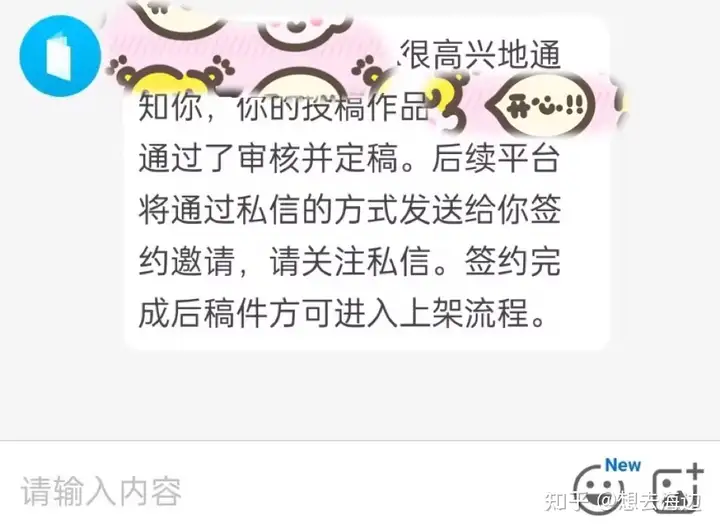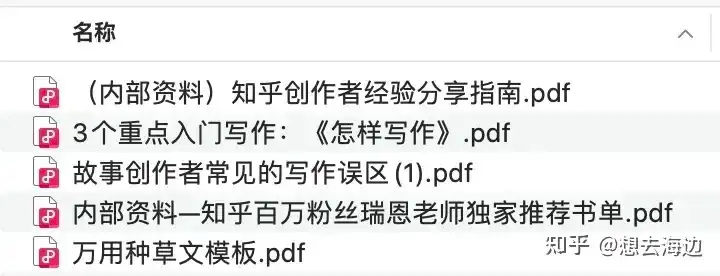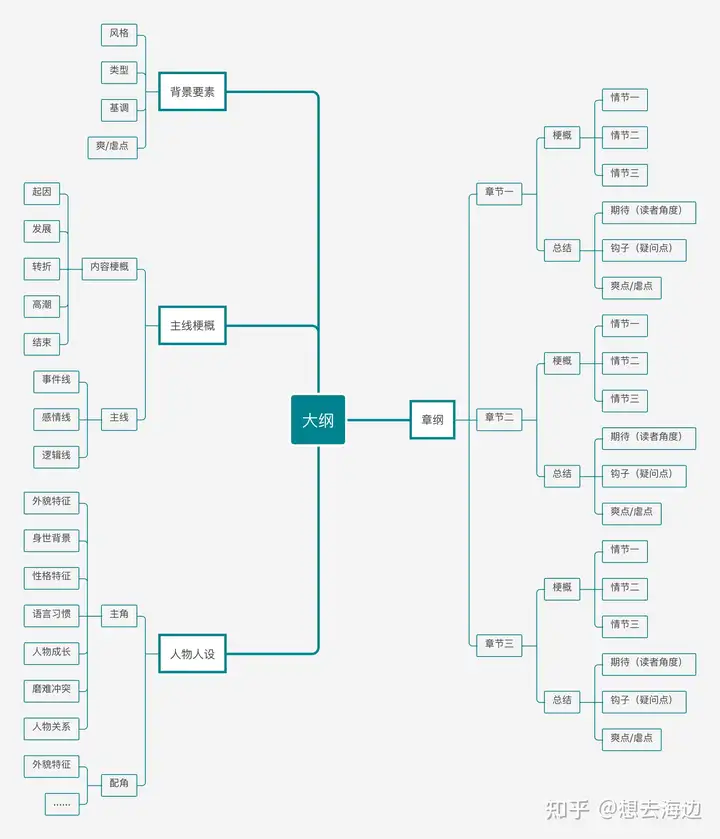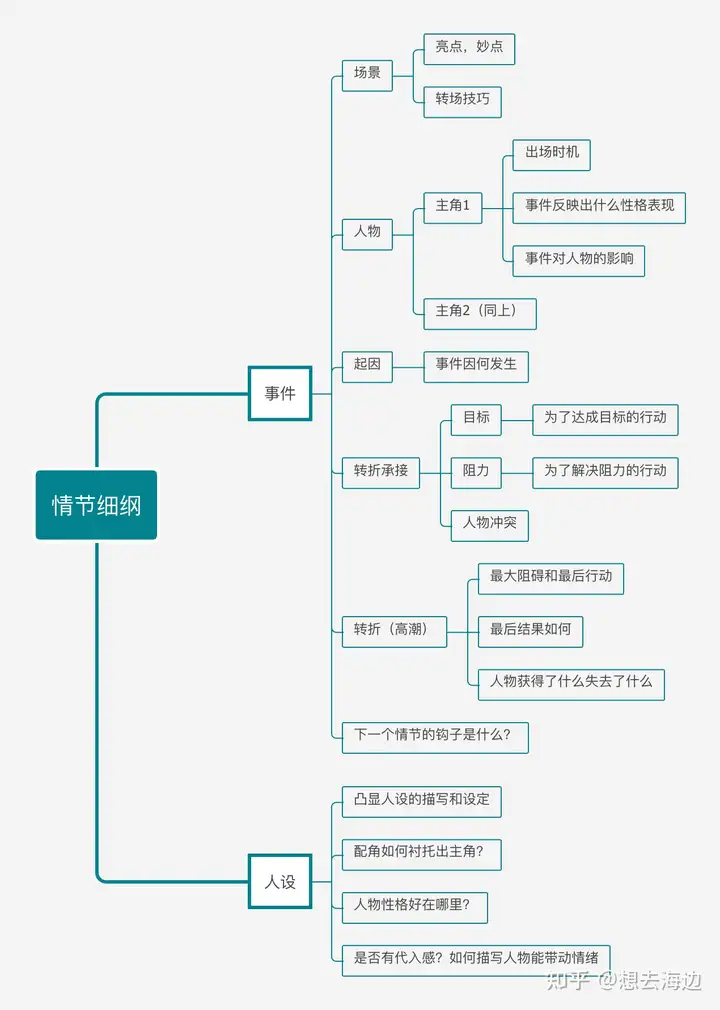Is there a quick way to write a novel?
Started writing novels in junior high school, I've summarized three key secrets from years of experience. I recommend beginners to dive right in!
- First, analyze the rankings and study the deconstructed literature
- Second, one must know the secret of writing code
- Thirdly, selecting the right platform is crucial.
Next, I will provide a 2k+ word guide on how to get started with the practical implementation. The article includes a mind map of the outline and a disassembly template. Additionally, a detailed platform submission tutorial is attached at the end.

I enjoy reading novels, and writing has been a hobby of mine since childhood, though I'm not naturally talented at it. In middle school, I used to write a lot of fan fiction, but my busy high school schedule left little time for writing.
Up until now, after several years of work, I resumed writing novels and wrote sporadically for over half a year. Initially, I approached it with unorthodox methods, but after taking advice from a Salt Selection producer, I dedicated myself to writing and eventually succeeded in getting the novel listed on the platform.
When writing novels, don't look for shortcuts. The more you read, write, and reflect, the more you will improve. Writing is essential for making progress.

Learn to analyze the chart and break down the text
Writing a new novel always begins with imitation. What should you imitate? How do you imitate it? Start by learning to: scan popular works, analyze chapter outlines, and deconstruct and analyze. Once you master these skills, your writing ability will experience a significant improvement.
1. Check the charts —— see what's trending lately
Chart sweeping involves monitoring market trends and reader preferences. What type of novels are readers on a particular platform currently favoring?
- Before starting to sweep the charts, decide if you want to focus on long-form or short-form content.
If you want to focus on short stories, you can browse Zhihu. If you prefer long stories, you can explore Jinjiang Tomato. As a working person, I find it difficult to commit to long stories, so I choose the short story route.
- Determine the theme by analyzing the charts
Newcomers should pick topics they are passionate about; otherwise, they might find it hard to follow the rankings and analyses in the beginning, and even harder to keep up when they start writing on their own.
But if you have a broad range of interests and are fascinated by various topics, focus on the most popular ones. For example, the trending themes on Zhihu currently include strong female leads,穿越 (time-travel or 穿越 book), and white moonlight substitute stories, etc.
Nowadays, every genre of web novels is highly competitive. If you don't write what's popular, nobody will read it. Following trends is the quickest way to success.
- What chart are you referring to? The new book chart or the potential chart?
However, I don't really recommend studying the top 10 writers, as their works may not be very helpful for beginners to learn from.
Unless you have exceptional talent, aiming for the top 10 in the overall rankings is quite challenging. If you're looking to read, focus on newly signed works or those that have recently gained popularity. While the data for new sign-ups might not be stellar, they at least have the merit of being signed.
- How to top the charts?
Checking the rankings isn't just about glancing at the list. I typically select 5-6 books based on my intuition (by looking at the titles) and then read the content of each one.
Study the rhythm and writing style of others, and understand the criteria for contract signing set by the major reviewers. By working towards these standards, you can get closer to signing a contract and monetizing your work.
Everything is challenging at the start. When aiming to top the charts, it's crucial to learn from others' opening storylines.
What suspense does the author create at the beginning to keep readers engaged? How many words are used? What hook is placed at the end? The beginning doesn't necessarily refer to Chapter 1; it can differ for short stories, long stories, and novels on various platforms. For a long novel, the opening might span the first 3-10 chapters.
However, for short stories on Zhihu, in addition to the opening hook of around a thousand words, the first 50 words are particularly important.
Zhihu places a high importance on the opening of articles. As someone who regularly submits content to Zhihu, I can explain why a strong opening is crucial.
Zhihu's distribution mechanism gives higher weight to content with higher click-through rates, making it more likely to receive traffic. To achieve a high click-through rate, the first 50 characters of your content must be engaging, so it's crucial to grab the reader's attention right from the start.
These are all the insights I gained from the Salt Selection producer.
By analyzing the charts, we can identify the unique features and preferred styles of each platform. Ignoring these characteristics and writing without any strategy will inevitably lead to failure.

If you want to write short stories, submitting to Zhihu is definitely the best option. I tried submitting to four or five platforms, but only got accepted and earned money through Zhihu's Salt Selection. Zhihu novels emphasize being concise and high-quality, so a short story typically needs to be around 1,000 to 1,500 words.
But being short doesn't mean it's easy to write; you still need to master the tricks of selected novels, which are the so-called "shortcuts". It's recommended to follow the official guidance directly.
I started here; the official tutorial entry is below ↓↓↓
This is the official Zhihu writing camp, where the producer will guide you step-by-step in mastering popular opening techniques and conventional writing methods on Zhihu.
Everyone should pay attention to the live stream content on the second day, and there are writing knowledge material packages available for you to claim. Don't forget to add the assistant teacher's WeChat, as they will send the materials to you!

2. Analyze the structure —— get a rough feel for the flow of the article
While scanning through the charts, if you come across a piece that grabs your attention right from the start, you can choose this book to create a chapter outline. The key to the chapter outline is to understand what each (few) chapters cover and to list their structure.
For example: "Chapter 1: Returning Home", this time I will reclaim everything that is rightfully mine.

Seriously, how do you break it down? You can summarize the plot of a chapter in a few sentences, clarifying and noting the main storyline and key events of each chapter.
I typically summarize in 50-100 words or create a mind map. For instance, I analyze how the author sets up the plot, introduces twists, and includes satisfying elements.
Conflicts and contradictions begin to be created there (they must be reasonable and logical), with some parts described in detail and others touched upon briefly.
Pay attention to the highlights and plot twists the author has set up in this chapter. If you encounter any brilliant paragraphs or words, feel free to jot them down. The essence of web novels lies in being entertaining, satisfying, engaging, and creating anticipation, so the writing style and outline are secondary.
The goal of studying a story's structure is to learn how others pace their plot and create anticipation and satisfying moments for the readers.
Once the chapter outline is broken down, the basic structure of the entire work can be reconstructed. The work's structure primarily consists of three components: background elements, main plot summary, and character profiles.

You have analyzed the structure and outline of others' work, and you do the same when you write.
First, create the main outline, then develop the chapter outlines. The main outline establishes the tone and the primary storyline, primarily to keep the narrative on track.
Zhang Gang outlines the plot for each chapter, but it's not essential to complete every chapter's outline from the start. I typically plan the next 3-5 chapters at a time, allowing me to make adjustments based on the preceding narrative. Sometimes, inspiration strikes while writing, leading to changes in the originally planned plot for the following sections.
3. Break down the text —— Closely examine the plot and characters
To further your studies and improve, you need to dissect the text, which involves breaking down the detailed outline. It's a tedious and time-consuming process, but carefully dissecting one book will significantly enhance your writing skills.
When breaking down text, you should read it with a specific goal in mind, not just for enjoyment as a reader. Additionally, you shouldn't rely on others' analyses; you must do it yourself.
I've created a template for your reference.

Consistently check in for coding
To be blunt, those who ask about shortcuts to writing novels are just being lazy. I'll put it out there: unless you're a naturally gifted genius, laziness won't help you write a good novel.
I set weekly goals and adjust the frequency of updates based on the dynamics of my job.
For instance, in the early stages, setting the outline and chapter framework will take one to two weeks, with two hours of work each day after finishing my regular tasks. In the later stages, the speed of filling in the details will be faster, and the daily word count will be adjusted as needed. To keep the ideas flowing smoothly, I will aim to add new content every day during the initial draft creation.

Select the appropriate submission platform
Identify which area you excel in; if it's short articles, I recommend focusing on Zhihu. Typically, articles around 10,000 characters are suitable for submission.
If it's a long piece, you might try the pomodoro technique, but it demands a lot of focused time, which can be challenging and hard to maintain, especially for someone like me who writes novels while holding a job.
To get approved on Zhihu, content needs to be fast-paced and follow current trends. However, writing by imitating templates can also be quite efficient.
There are three methods for submitting to Zhihu:
Hard version: Publish your short story on Zhihu by finding a relevant question and editing your answer. If readers approve and the performance is good, Zhihu's Salt Selection producers may reach out to you with a contract offer. (It's very challenging, not recommended to make it harder for yourself)
Classic version: Submit your short story to the "Yan Selection Platform". A Zhihu Yan Selection producer, acting as an editor, will review your work. If it passes the review, you can successfully submit and sign the contract. Note that the success rate is low and heavily depends on the quality of your submission.
Easy version: Enroll in Zhihu's writing course, learn their Salt Selection story techniques, and create a piece. Submit it through internal channels, and once it has been edited and approved by the producer, you can successfully submit and sign a contract. (This method is the simplest and could almost be considered a shortcut)
To promote the new writing program, Zhihu is offering a 1 yuan creative writing course. The instructors are the program managers and senior producers of the "Salt Selection Column," who are well-versed in the submission guidelines for the column.
If you're interested in submitting a novel to Zhihu, it's highly recommended to listen and try out. This will give you a more detailed understanding of Zhihu's submission requirements, creator experience guidelines, and story writing techniques. You can also claim a package of writing knowledge and practical materials. Click the card below to sign up now ⬇️ ⬇️ ⬇️
In summary, there are no shortcuts to writing novels; to write good web novels, one must read more, write more, and gain deeper insights.
Writing is something you enjoy, and happiness is the most important.
Wishing everyone lots of popular articles and big earnings!

Edited on 2023-10-19 at 16:34, IP location: Beijing
More responses
Yes.
I'll tell you one right now.
The story core consists of 36 different types.
Respectively:
1.哀求请托。2.援救。3.复仇。4.亲族间的报复。5.逃亡者的追捕。6.灾祸。7.不幸的遭遇。8.反抗。9.壮举。10.拐劫。11.谜的解释。12.获取。13.骨肉仇恨。14.骨肉竞争。15.奸情杀害。16.疯狂。17.因轻忽而招致损害。18.不知而犯的恋爱罪恶。19.无意中伤害自己所爱。20.为了主义而牺牲自己。21.为了所爱而牺牲自己。22.为爱情牺牲一切。23.有原因地牺牲所爱之人。24.两种不均等的势力斗争。25.通奸。26.恋爱的罪恶。27.发现所爱之人有不名誉的事。28.恋爱发生阻碍。29.爱上自己的仇敌。30.野心。31.人与神的斗争。32.错误的忌妒。33.错误的判断。34.悔恨。35.亲族的重逢。36.失去所爱之人。
就这36种,你不信的话,我也没办法。
后面本来有一段我自己的见解,后评论区有人指出我的见解有误,所以我删掉了。
有兴趣的话大家自己去搜吧。
我教你点真东西,不是纯枯燥的理论话,而是正经的具体步骤。
其实就两个字,抄袭。
不是魔道祖师那样的抄袭,那样的抄袭当然火是没问题。
但是更有可能没火你就被读者喷死。
第一步,抄人物,
人物从历史书上找,什么样的文学影响都比不上真实存在过的人物形象生动。
你就算拿莎士比亚和托尔斯泰来,我都敢说他俩就是不折不扣的垃圾。
哈姆雷特人物再经典一万倍,比不上我村口二傻子人物真实深刻。
为啥?
假的就是假的,真的就是真的。
什么杀神白起?
什么祖龙行政?
什么圣人孔子?
什么人皇帝辛?
什么霸王项羽?
什么关张赵马黄?
什么使君与操?
什么四大美人?
这都是你的小说素材,凭啥三国演义抄的,你就抄不得?
大不了换个名字,再不济换个性别,再不济种族也换了。
机械族关羽,史莱姆朱元璋,谁敢说你抄袭??
第二步,抄剧情。
世间小说无数,其实剧情就那么几种,甚至说只有一种,就是起承转合。
历史书也证明了这件事,无论人类社会如何发展,人类的本质都是不断重复已经发生过的事。
这叫太阳底下无新鲜事。
但是,理论虽然简单,难度非常大,小说抄袭最容易翻车的就是剧情。
那么如何抄袭剧情呢?
很简单,改动机,改背景,改人物,改结局。
改动机,比如天龙八部主角乔峰的故事动机就是寻找杀父仇人,传说中的带头大哥。
这是个复仇式故事。
如果我们改了动机,乔峰不是寻找杀父仇人,而是为了夺取传说中带头大哥身上的无上神功。
那么这就是夺宝剧情。
改背景,比较简单。
大仲马老爷子的基督山伯爵,被金庸老爷子套上了武侠背景,就成了武侠小说。
黑泽明大导演的《用心棒》,换成了美国西部大沙漠背景,就成了《荒野大镖客》。
改人物,更简单了。
一个普通恋爱故事,只需要把女主角简单改一下性别。
那么就成了不落俗套的同性恋问题的探讨,不仅有新意,甚至有了思想深度。
改结局,最简单的,小孩子都能学会的技能。
狮子王和哈姆雷特。
都是王子复仇记,一个是喜剧,一个是悲剧。
两个都是人类历史最经典的作品。
文学作品里,为啥有一个超级分类叫做同人向作品。
就是因为原作的有些结局我们不喜欢,所以我们写出同人作品弥补遗憾。
试问,
谁愿意看到小龙女被玷污?
谁愿意看到诸葛亮星陨五丈原?
谁愿意看到中华被日本帝国铁骑践踏十四年?
谁不想进入斗罗世界暴打唐三?
谁不想救下风波亭的岳飞?
第三步,抄设定。
这一步连任何禁忌都没有,怎么抄都行,也是唯一一个可以百分百照抄的。
网文大流派,修真流。
都是飘邈之旅的同人作品,连名字都懒得改,都是清一色练气,筑基,金丹,元婴。
洪荒流,更是不必说。
别说背景设定了,连基本剧情和出场人物都照抄,而且你还不能改,你改了就不正宗,读者就要骂你。
至于什么外国的克苏鲁流,都是一样的。
以上三步完成,你就基本上是一个网文好手了。
最后一步比较难,抄文笔。
古龙为啥强,文笔别致。
烽火为啥强,文笔牛逼。
抄文笔是个水磨功夫,不是能够顿悟的东西。
从最低的开始学起。
先学小学生文笔,代表作九转金身决,这是网文作者不可不看的一部书,它揭穿了网文的真谛。
再学中学生文笔,代表作凡人修仙传的前一百万字。
再学大学生文笔,代表作血红的前期作品。
再学文学好手文笔,代表作兽血沸腾和跳舞的作品。
再学极致的文笔,代表作烟雨江南的亵渎。
学完四步,天下无敌。
学完三步,白金可得。
学完两步,勉强温饱。
只学一步,屁都不是。
抄袭就是未来。
学习乌贼的诡秘之主,抄袭克苏鲁,抄袭scp基金会,抄袭塔罗牌,抄袭维多利亚时代经济知识,抄袭神秘学知识,抄袭英国雾都事件。
学习昆汀塔伦蒂诺,抄袭日本剑戟片,抄袭中国功夫片,挪用前人音乐作品。
学习成龙,抄袭卓别林,抄袭基德。
学习周星驰,抄袭这个杀手不太冷,抄袭闪灵,抄袭李小龙,抄袭低俗小说,抄袭美式无厘头喜剧。
记住我们的口号,
抄袭就是我们的未来,不抄袭,毋宁死。

